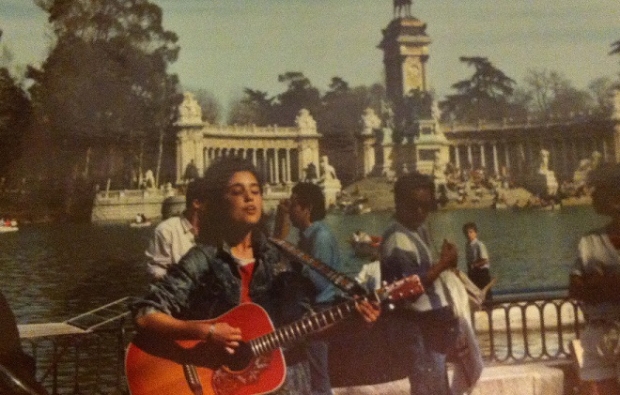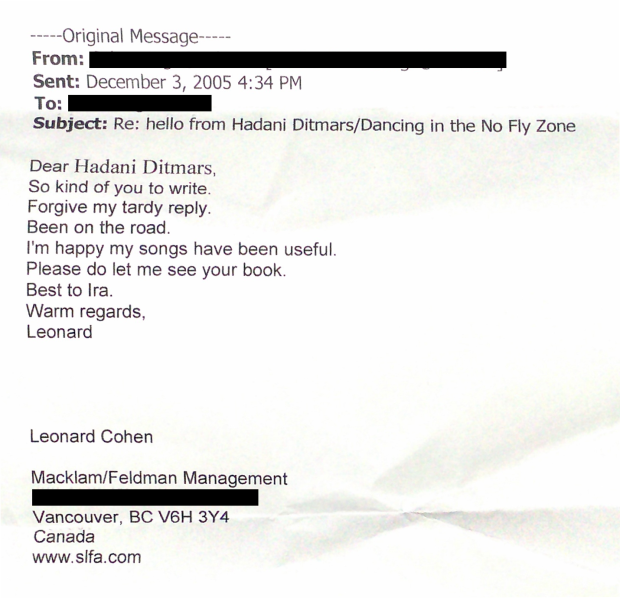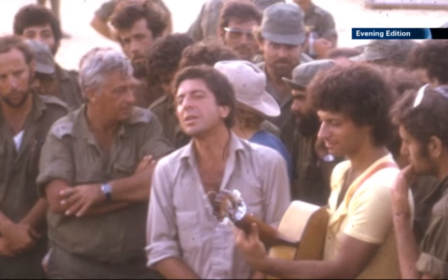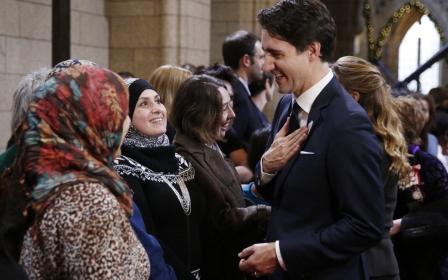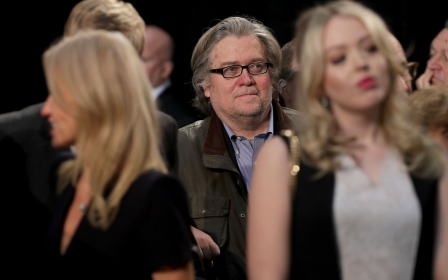Meeting Leonard Cohen: How I kept darkness at bay in Middle East war zones and beyond
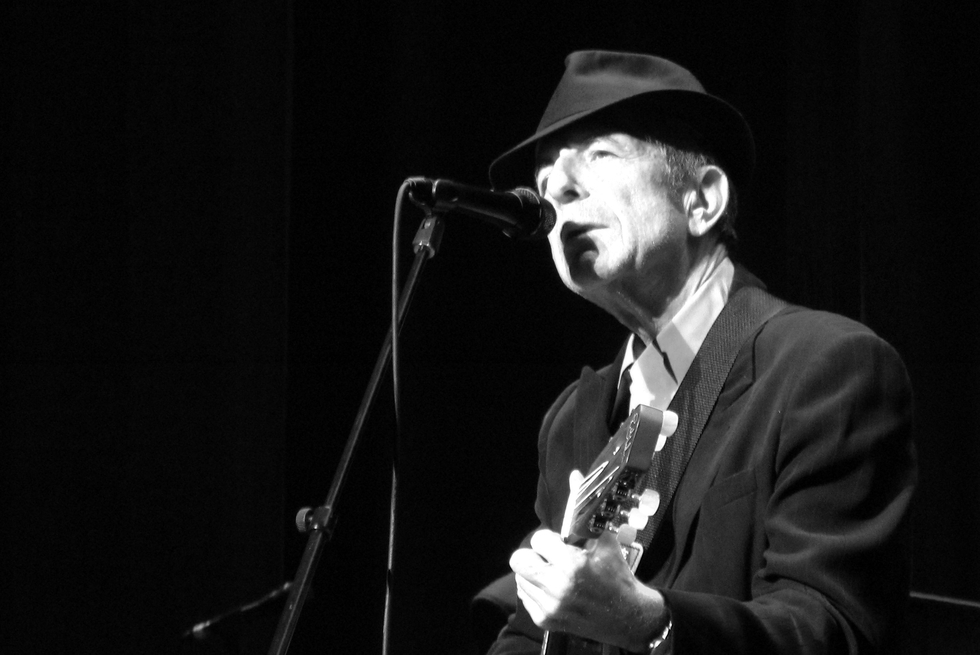
As a teenager growing up in Vancouver in the 1970s, I was always enamoured of a tale my mother told that, if fate had dictated, could have made me Leonard Cohen’s love child.
It was 1966 and he was a young poet on tour. She was a 22-year-old half-Lebanese beauty, working to get my father through university. I was a good two years away from incarnation.
Thank you dear Leonard for the gift of your songs – They have helped me navigate the shifting waters of my heart, and acted as beacons when the storms came
They met at one of his readings on campus, and she invited him for a dinner of tabouleh and svihah, giving him her number. A few hours later he rang, but my father answered. Leonard never came.
Unlike Leonard, my father was a man of few words, and he never divulged what the conversation had entailed. Later, when he disappeared into absentee fatherism - as popular in the 1970s as Cohen’s music- abandoning us for a commune in the wilderness and several other families, I clung to my mother’s story about Leonard, imagining what might have transpired if the “golden voice” had been my daddy.
All the lyrics, most of the chords
I grew up singing his songs and playing them on my guitar. By age 12, while my peers were deep into Blondie and The Ramones, I knew all the lyrics and most of the chords to his music.
It was Ramadan, May 1988, and I was even more spaced out than usual, subsisting on a strange student diet of fig cakes and arroz y garbanzo. After an afternoon at the Prado, I found myself wandering one evening near the Palacio de Deportes and magically happened upon a Leonard Cohen "en concierto esta noche" sign.
But what would I do? How would I ever afford a ticket?
'That angel really helped me'
A scalper appeared as if on cue. I reached into my wallet and found a 10-pound note I had been saving for emergencies. Soon I had a ticket.
I was quite early, so decided to write a note to Leonard on one of the two Angel de la Musica postcards – a Renaissance painting of a cherub singing with a lute in hand - I had acquired that day at the Prado.
He came out of the backstage door looking like a kindly Jewish grandfather, not quite the lady-killer I had imagined
I told the whole dinner-that-never-was story, mentioned that I was a singer-songwriter myself and, hopefully, gave it to a stagehand who said he would pass it on.
Five glorious hours later, after hits from his then current I’m Your Man album, like the Lorca-inspired Take This Waltz and golden oldies like So Long Marianne (I had purchased a pirated cassette tape of Songs of Leonard Cohen in the Madrid metro and the first few chords at the beginning of that song always made me choke up with nostalgia for some kind of Canada I longed for), it happened. I got to meet Leonard.
He came out of the backstage door looking like a kindly Jewish grandfather, not quite the lady-killer I had imagined. He saw me clutching the same postcard of the Angel of Music and approached me.
“You’re the girl who gave me that angel card,” he said, with that famously rich baritone voice. “Thank you. That angel really helped me tonight.”
And with that, he was gone, off into the dark madrileño night.
Keeping darkness at bay
Later on, when I lived in Beirut and spent time in other Middle Eastern war zones, I found his songs somehow expressed the essence of those places in an uncanny way.
Wandering through Beirut’s ruined downtown, Dance Me to the End of Love seemed like a perfect companion song.
When I lived in Jerusalem, anything from New Skin for An Old Ceremony but especially Is this What You Wanted and There is a War seemed to express the Israel/Palestine conundrum in a way that the TV news could not.
And when I found myself driving through close to curfew time in post-invasion Baghdad with the Greek ambassador one night, Stories of the Street (written in Franco-era Spain but well-suited to 2003-era Iraq) seemed like the obvious song to keep the darkness at bay:
The stories of the street are mine, the Spanish voices laugh.
The Cadillacs go creeping now through the night and the poison gas,….
And where do all these highways go, now that we are free?
Why are the armies marching still that were coming home to me?
'Dear Hadani'
Later, when I included the scene in the chapter of Dancing in the No Fly Zone called Baghdad By Night, and after gaining permission to excerpt some of the lines, I received a lovely email from Leonard. On 3 December 2005, he wrote:
I was gobsmacked. But how to respond? How could I ever match the cool brevity and poetic generosity of his prose? I could not. After waiting a week, I sent him a gushing reply.
I left a signed copy of my book for him at his then Vancouver agent, Sam Feldman’s office, but I don’t know if he ever received it. Soon he would change agents, and email addresses, and I would never see him again.
Thank you dear Leonard for the gift of your songs – songs that have been very useful indeed. They have helped me navigate the shifting waters of my heart, and acted as beacons when the storms came.
I’m sorry that you never came to dinner that night. You would have enjoyed the tabouleh I’m sure. But you will always be my daddy, and your voice will always take me home.
The author singing 'Dance Me to the End of Love' with an Iraqi guitarist at a benefit for Syrian refugees
- Hadani Ditmars is the author of Dancing in the No-Fly Zone: a Woman's Journey Through Iraq, a past editor at New Internationalist, and has been reporting from the Middle East for two decades.
The views expressed in this article belong to the author and do not necessarily reflect the editorial policy of Middle East Eye.
Photo: Leonard Cohen in concert in 2008 (Wikimedia)
New MEE newsletter: Jerusalem Dispatch
Sign up to get the latest insights and analysis on Israel-Palestine, alongside Turkey Unpacked and other MEE newsletters
Middle East Eye delivers independent and unrivalled coverage and analysis of the Middle East, North Africa and beyond. To learn more about republishing this content and the associated fees, please fill out this form. More about MEE can be found here.



